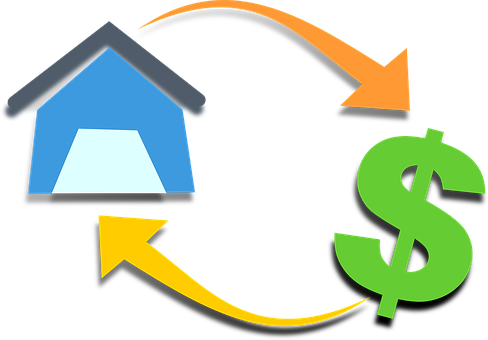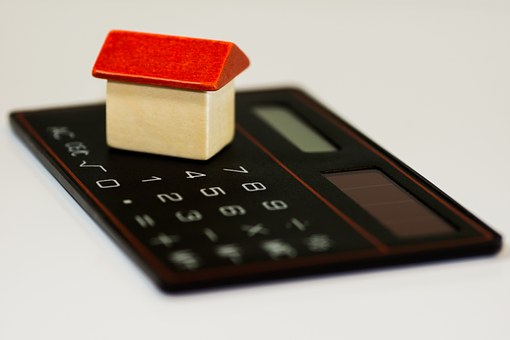|
Comparing home mortgages can be complicated. But you don’t need a finance degree to make an informed decision. Here are some steps to help you get there.
Look for lenders to consider:
During your first conversation, you and the loan officer will usually ask each other questions, and the loan officer will use that information to assess your situation. That may sound cut and dried, but the meeting should be fluid based on what you’re ready to do. Scope out the lender’s communication strategy and their process for delivering on time. Ask questions like:
Misconception: Thirty-eight percent of buyers think comparing multiple mortgage offers in a short time will hurt their credit rating, according to a 2020 LendingTree survey. But as long as the lenders all pull the borrower’s credit within a couple of weeks, it’s counted as a single credit inquiry. It is not problematic if they do it within a narrow window of time. Compare the financial information located on the loan estimate form. You’ll want to drill down to origination charges in the lender section. Make sure you’re comparing apples to apples. If one lender is offering a 30-year fixed rate at 2.875% with no lender fees and another is offering 2. 75% with $1,500 in lender fees, those are unlike products. Get the fees at the same rate to find out who’s less expensive. Comparison shopping can get complicated. Here are six ways to simplify the process. 1. Keep Your Pool Manageable Mortgage shopping depends on the borrower and the personality type and how they’re work. The process can seem overwhelming. That’s why it makes sense to have a select few options to compare so borrowers can process and assimilate them. 2. Get a Fees Worksheet The best way to compare effectively is to zero in on the fees worksheet, which the loan officer should provide. Then you can figure out just what the lender’s direct fees are, and you can make a nice, simple comparison. 3. Understand a Fees Worksheet Versus a Loan Estimate Keep in mind that the numbers on the worksheet are estimates and not locked in. Interest rates are fluid and change daily. On the other hand, after you have a contract with a seller, the loan estimate and loan application are where the information is binding barring structural changes to the loan. Make sure the information reflects previous discussions with and disclosures by the loan officer. 4. Be Careful Interpreting Third-Party Fees Third-party fee estimates are included on the worksheet. Two lenders could each come up with different estimates for title, escrow, or appraisal fees. But not all are negotiable. For instance, the seller chooses the title company, so the lender doesn’t control the choice or the fees. The lender could be choosing the high or low end of a range, but it’s only an estimate. 5. Think About Timing Make sure lenders are using the same time frame for locking in pricing and that it will extend through the closing. 6. Always Apply for Loan Approval Before Finding a Property But some lenders will allow borrowers to go through the formal underwriting process — not just preapproval — without having a property. The borrowers can get a bona fide mortgage commitment with all of the major buyer financials truly underwritten at that point. Then when borrowers make an offer, they can close more quickly. You'll have to invest some time and effort into comparison shopping for a mortgage loan and selecting a lender and a loan officer. But your return on investment can pay off over the long haul. Whether you want to buy or sell a home locally or globally, I can help you finding or selling your home so you can create the life you love! ☎️ 706.530.1114 or email us. Have a great day! Iveth Caruso A mortgage is one of the biggest single debts you’re likely to willingly take on. As such, being able to properly manage your mortgage is very important. With so many options when it comes to loans, repayment and refinancing, it can all get a bit confusing. One point in particular that you might hear a lot of talk about is prepaying your mortgage. Should you prepay your mortgage? Should you focus on other things first? Before rushing into prepayment, make sure you have all of the information first. We’ll start by looking at exactly what mortgage prepayment is and how it works. What Is Mortgage Prepayment? As the name suggests, mortgage prepayment is the act of paying some or all of your mortgage principal before it’s actually due. This can take a number of forms, from paying a higher amount than the actual payment that’s due each month to making additional payments in months where you have money to spare. Some homeowners even make a single large additional payment every year after getting a tax return. Regardless of the specific form that prepayment takes, the end result is the same: More of your outstanding mortgage balance gets paid off, resulting in a decrease in both the amount that you still owe and the amount that interest can be applied to. What Are the Benefits of Prepaying? There are several benefits to prepaying your mortgage, regardless of how often the payments are made. Consider the following and how they might apply to your mortgage situation:
Are There Any Downsides? While there are definitely benefits to prepaying your mortgage, there are potential downsides as well. Some mortgages, especially those with adjustable rates, are designed to not allow prepayments; if you attempt to prepay on the mortgage, this can trigger a penalty fee. Additionally, some lenders only accept prepayments in certain forms and will apply any other money received as simply an early payment against the next month (which means that the money will go toward interest and principal and not just your principal loan balance.) Attempting to prepay when you have significant debt elsewhere or don’t have a safety net built up for yourself isn’t a good idea, either; your mortgage likely has a lower interest rate than most if not all of your other debts, so you may be better off paying them off and building up savings and retirement funds first before you start worrying about prepaying a mortgage. Should You Prepay Your Mortgage? Whether or not you should prepay your mortgage depends on a number of factors. You should consider the type of mortgage you have, how much your monthly mortgage payments are and what your interest rate looks like. You should also take a look at your overall finances and how well prepared you are for emergencies and retirement; it’s possible that your money would be better off going elsewhere at the moment. Even if prepayments seem feasible and affordable, make sure that your lender accepts prepayments without penalty and that you know how they prefer to receive prepayments. Those extra payments won’t do much good if your lender simply applies them against interest or charges you a penalty fee because prepayments aren’t allowed by your loan. Do you have any questions? I can help!
Iveth Caruso, your REALTOR in the North Atlanta Area How To Save On Your Mortgage Costs!
As with most homeowners, your mortgage payment is probably your largest monthly expense. Wouldn’t it be nice to trim this huge cost and perhaps shorten the life of your loan? We have listed seven tips below to help save you money on your mortgage. The tips below are based on this hypothetical mortgage example (savings will vary based on your actual loan facts and timing of the change): $200,000 mortgage 30-year fixed rate mortgage 6 percent interest rate $1,199 monthly principal and interest payment 1. Add One Extra Payment Each Year Perhaps the easiest way to save money on your mortgage is to make an extra mortgage payment each year. These extra payments are automatically applied on your principal, not interest. Not only does your remaining balance drop, but you will not have to pay interest each month on that principal for the remainder of the loan term. Savings: $47,000. By making one extra payment of $1,199 each year and applying it to your principal, you could save over $47,000 in interest and cut 5 years off the life of the loan. 2. Set up Bi-Weekly Payments Another trick to pay off your loan early is by creating a bi-weekly payment plan. Put half of your monthly mortgage payment in a savings account every other Friday (or, on your pay day). Each month, pay your mortgage from the account. At the end of the year, you will have made 26 half payments, which is 13 full payments. This will leave with you an extra payment that you can put toward your principal. Most people manage the separate accounts themselves, but there are companies that you can hire to act as an escrow service and manage the payments for you. Beware that they could charge you for this service. Savings: $47,000. Same as extra payment. 3. Get Rid of Your PMI If your down payment was less than 20 percent, you were probably required to pay private mortgage insurance (PMI). However, you can petition your lender to cancel the insurance as soon as your mortgage balance falls below 80 percent of the home’s appraised value. This can happen if your home’s value has gone up or you have repaid some of the principal. This may require a new appraisal but could shave hundreds of dollars off your monthly payment. Savings: $130 per month. If you only put down 5 percent and had a PMI rate of .78 percent, you could save $130 per month. 4. Reduce Your Assessment Property taxes can cost thousands of dollars a year. If you think your home’s value has decreased in the last year and it was not properly accounted for in your tax assessment, you can petition your assessor and fight your assessment. Lowering your tax assessment will lower your yearly taxes. Savings: Varies. Depends on your local tax rate and home adjustment, but could be hundreds of dollars a year. 5. Reset Your Mortgage This is not commonly known, but some lenders will reset (recast) your monthly payment if you make a large payment towards the principal of your mortgage. Your monthly payment stays the same, but the term of your loan shortens. When the loan is recast, your monthly principal and interest is recalculated so you end up with a lower monthly payment over the existing term of the loan. Savings: $120 per month. Putting $20,000 into the loan would reset the payment to $1,079, saving you $120 per month. 6. Modify Your Loan If you are late on your payments and are going through a financial hardship, you may be eligible to modify terms of your loan (such as rate, term, or principal balance) to make it more affordable. The goal of these programs is to allow borrowers to stay in their homes and continue making their monthly payments. Not everyone qualifies for these types of programs, but if you do, they can save you a lot of money. To find out if you qualify, contact the servicer of your mortgage or visit the Making Home Affordable eligibility site. Savings: Varies. It can reduce your interest rate to as low as 2 percent, extend your term to 40 years, or reduce your principal. 7. Refinance Lastly, the most common way to save money on your mortgage is by refinancing to a lower interest rate. Reducing your rate can lower your monthly payment and help you save on interest payments. However, there are costs associated with refinancing so you want to be sure you are going to save enough to cover the refinancing fees. With rates at historic lows, if you can refinance, and you haven’t already, you should consider it. Savings: $126 per month. By lowering your interest rate to 5 percent, you would have a payment of $1,073 which would save you $126 per month. If the refinance costs $5,000, you would recoup the fees after 40 months. Iveth Caruso Providing the most professional, dedicated, informative and loyal service you can find in Real Estate! If you’re serious about purchasing a home, getting a pre-approval letter should be one of your first steps in the home-buying process. It is fundamental to obtain a pre-approval letter before you even begin visiting properties. You may have a hard time getting the attention of home sellers or even real estate agents. The pre-approval involves choosing a mortgage lender and a loan program and providing some basic information.
For most lenders the pre-approval process is really simple–they’ll ask you about your income, debts and assets, and they’ll calculate a maximum loan amount and purchase price based on that information. Loan officers may not verify your information or check your credit rating. Other lenders will be much more thorough – there is no industry standard for pre-qualification. highly recommend all of my buyers to present not only an earnest check, but also a pre-approval letter and if it’s a cash offer, a copy of a recent bank statement showing they have proof of funds to close. When you make an offer and an agent receives it with these documents attached (which is almost standard procedure); the real estate agent immediately has more confidence that you are qualified and really intend to close the transaction; in other words you are showing you are a serious buyer. Lastly, a pre-approval provides you as a buyer vital information as to what price range you should stay within as well as the range of yearly taxes. A real estate agent who requests a pre-approval prior to showing a buyer homes is trying to save you time and frustration. As a buyer, a pre-approval letter provides you and edge and purchasing power, especially in a multiple offer situation. If an agent asks if you’re pre-approved, it's a good sign. Because it shows that they are thorough and thoughtful about how they do their business. That is the type of agent you want to have on your side when you’re buying a house, one agent who pays attention to the details. One who isn’t going to waste your time or allow your heart to be broken when you fall in love with a house you can’t do anything about. If you are ready to buy a home, contact me for a free consultation.
Because I firmly believe in empowering my clients with knowledge and choices, so they can make the best real estate decisions, this is the first post of a series of videos geared toward home-buyers and home-sellers who want to learn and be familiarized with the mortgage process.
Simply put a mortgage is a loan for the purpose of buying a home. It is a "secured loan," meaning that you have to put up collateral in exchange for the loan. In the case of a mortgage, the collateral is the home itself. You repay the mortgage in monthly installments. Learn mortgage basics so you can decide what type is best for your situation!
Stay tuned for the second video in this mortgage series!
Iveth Caruso, your REALTOR in Forsyth Co. |
Categories
All
The information on this site is intended to be a free resource to provide general information to the public. The information is intended to supplement instruction from your legal, financial or real estate adviser. The information contained on this site should never be taken as a substitute for legal or financial advice from a licensed professional.
Archives
October 2021
|
Cell: 706.530.1114
Iveth Caruso Real Estate™ ©2017 All rights reserved. LoKation Real Estate is licensed in Georgia
Your Home, Your Dream, My Mission!
God, Family, then Business.







